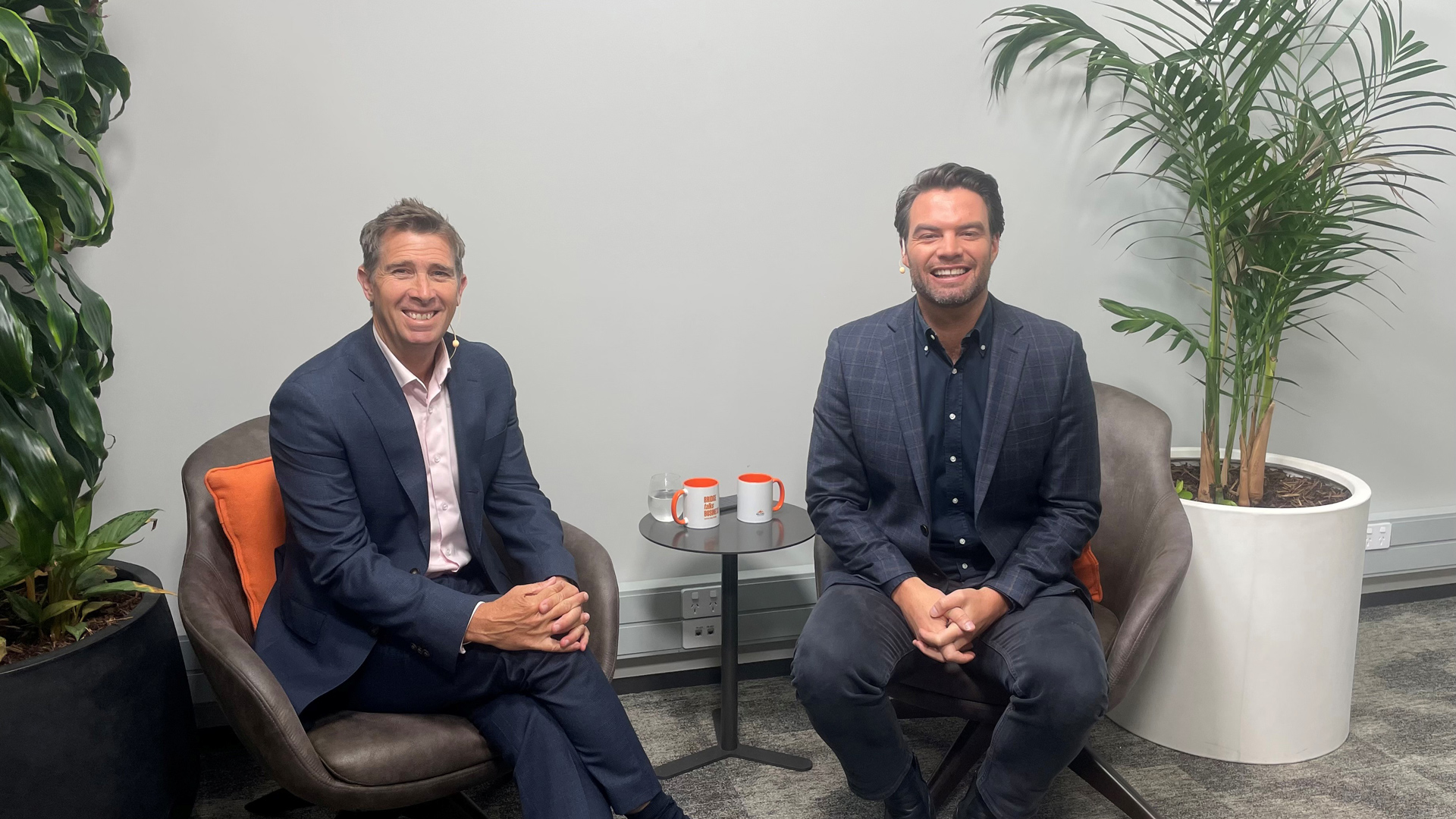Halfway through the year is the perfect time to revisit your financial goals. What are some of the key things to consider when assessing if you’re on-track? Milford Financial Adviser Jess Travers talks to Ryan Bridge about how you can ensure your money is working hard enough for you to reach your savings target.
Listen.
Click here to download the MP3 file or listen to the podcast on your favourite platform:
Read.
Bridge talks Business: 1 July 2025
Episode Transcript
Ryan Bridge
Kia ora and welcome to Episode 39 of Bridge talks business with Milford. As stocks in the US soared to new intraday highs – ending last week higher than February before all the tariff turmoil – now is a good time to think about renewing your financial goals. Do you have any? How are you tracking against them? We’re now halfway through the year, so it’s time for a little financial stock-take.
First, here’s your top five business bits from the past week.
1. Oil prices have stabilised after a wild ride due to the Middle East conflict. At Monday’s peak, oil was up 30% on the month prior, but by the end of the week, it had already round-tripped back to where it began pre-conflict.
2. Trump cancels trade talks with Canada after they said they would proceed with the digital services tax. Washington didn’t like it. Canada has subsequently caved, scrapping the tax, talks now resuming.
3. US housing market data continues to show signs of softening with new and existing home sales down. Starts down 17% year to date, and we’ve seen a surge in the number of sellers versus buyers, with this differential now the widest since 2013.
4. The German cabinet passing a draft bill for the infrastructure fund and 2025 budget, with the path much faster and steeper than expected. Now, they are prioritising existing infrastructure projects, and that should help facilitate fast disbursement. And all of this should mean positive things and medium-term growth for the German economy which is, of course, the largest in Europe.
5. US share markets are now 25% off their April low, closing the quarter at new all-time highs amid optimism around trade deals and potential rate cuts from the Fed. The focus this week shifting to employment data after signs there of softening.
So, that brings us to our sit down interview this week. And it’s for anyone who’s thinking, I go and get my health check-up once a year, go and see the doctor maybe twice a year, depending on your age. You get the car done with your warrant of fitness. Why aren’t we doing our finances? We’re halfway through the year, the calendar year. We’ve seen stock markets take a bit of a dive. Then they have recovered. The price of oil has done the same. Lots of stuff is moving. So, is it time we sit down and take a look at our own finances at home? Just a note, this segment is informational only and should not be considered advice. I’m very excited to have on the podcast Jess Travers. She is a Financial Adviser in Milford’s Wealth Management team, here to explain how we can go about doing this. Jess, welcome to the show.
Jess Travers
Thank you.
Ryan Bridge
Lovely to have you here for your very first time. Now we’re talking about a sort of check-in on your finances. We’re halfway through the year. It’s almost like a WOF – a Warrant of Fitness on your financial health. How often should we do this? As often as we get a warrant of fitness on our car?
Jess Travers
Good question. Probably at least once a year is a really good time to check in, and have a look at your plan and how you’re tracking. Unless there’s been material life change, and there could be something like changing your job, you might get married, kids, pretty big one or getting divorced. So, something substantial that might have actually changed. But generally once a year is a good time to check in, and it helps you identify whether there’s any helpful changes you might be able to make.
Ryan Bridge
We’ve been through a lot over this first half of the year in terms of the stock market. Are you finding that people are wanting to now reassess where they’re at? Maybe they’ve been scared or buoyed in the last couple of days by what’s happening. Are people wanting to do that sort of check-in around this time?
Jess Travers
Absolutely. Well, interest rates coming down has been a big catalyst for people checking in, because if you’ve been holding cash savings or term deposits, the income you’re getting from that is tracking down. So that’s been a big catalyst for people getting in touch and reassessing what they can earn. The first thing you should start with, though, is if you don’t already have a goal as part of your financial plan, you’ve got to set one. Or it’s really helpful to have one, because if you don’t know what you’re working towards, you actually don’t know what steps you need to take to get there. So, by understanding if you’ve got a retirement goal, you know you want to have X amount of income in retirement, which means you’re going to need a capital base of a set amount. You’ve got to have that goal in place to know whether your term deposits or your KiwiSaver or your investments are earning you enough to get there. So, a goal could be longer term like a retirement goal, or could also be something shorter term like saving for kids’ school fees. There might be some annual travel, upgrading a house or a car. So first and foremost, having that goal and knowing what you’re working towards is one of the first things you should do, if you don’t already have one as part of your annual check in.
Ryan Bridge
So if I’m thinking about what my goal might be, can I get in touch with you at Milford and say, help? Do you help people figure out what those goals are?
Jess Travers
Yeah, absolutely. We help you go through the steps of identifying really what you’re working towards. And it could be a financial goal, but it also could be lifestyle goals like, you know, travel, for example, you might want to pay down your mortgage by a certain age. You might want to have the ideal amount at retirement, but it could be shorter term stuff like being able to afford to do travel regularly, those types of things. So, we absolutely work with you to help identify what you’re working towards.
Ryan Bridge
Okay. So I need a plan, but need a goal first so that we know exactly what the plan is supporting. Then what about KiwiSaver because that’s obviously going to play a big part in all of this. Can you tell us whether we are contributing enough to KiwiSaver in order to get the thing that we want at the end?
Jess Travers
Yeah, absolutely. So understanding how much you’re saving into KiwiSaver and your other investments, because you might have other investments outside of KiwiSaver and we’re big advocates for that too, because KiwiSaver is locked away until you’re 65. Part of a really good financial plan is having funds you can access in case of emergency, because things absolutely happen. So, we can talk about what a good amount might look like. It could be 3 to 6 months’ worth of living expenses. But understanding what your KiwiSaver is likely growing by, what type of return you might expect from your KiwiSaver and your other investments, helps us do some projections so we know that in 10, 15, 20 years’ time on the current path, you’re probably going to get somewhere around here. But could you afford to make any small changes by increasing contributions or any lump sum deposits? They might help you get here by that time. So, absolutely. It’s really good to understand are you in the right mix of funds? Could you make any additional contributions to actually accelerate that savings and growth rate?
Ryan Bridge
Just given the human condition and how short-sighted we can be – what advice do you give people about how long term they should make their goals? I mean, should you start with the very end and say, right, I want to be living in a castle, traveling the world indefinitely when I’m 70, and work backwards from there?
Jess Travers
Yeah. It’s good to have a mixture of long and short term goals. It’s nice to be able to cross some off a little bit earlier rather than just saving for retirement, which could be 20 or 30 years away. So, it’s nice to get some wins on the board a little bit earlier. I’ve heard retirement described as a 30-year holiday, which is quite a nice way to think about it. So, if that’s your mindset, hey you probably want to do some travel, and live in a nice home, and have the car that you want. It’s something to work towards and nice to be able to identify. Once you’ve got your goal, you can work backwards from there and really help you identify what steps, what growth rate you’re going to need on your savings, how much you’re going to have to contribute to try and get there.
Ryan Bridge
So, overall, we’ve got our plan. We’ve got our goal that’s coming before the plan. So, we know where the plan is going. What’s the right mix of investments that you need to actually reach your goal?
Jess Travers
Yeah, good question. By understanding what our goal is and what type of return that we’re going to need to get there, that’s going to help you on the path of understanding what mix of investments you need. So, for example, if you need a 7 or 8% return over the next 15, 20 years, then probably you’re going to need a good exposure to some growth assets. And what those are, that’s shares. And so getting the right fund or type of investment that you know is going to have a good chance of getting you the return that you need is really, really important. The most common investments that we see within managed funds in New Zealand are shares obviously, bonds, listed property, and cash. And so getting the right tilt between all those different asset classes is really important to help derive the return that you need. So, Milford can help with that. As advisers we help with that. But it’s really important to get that underlying mix right, so that you’ve got the best chance possible to get you the return you need, to get you either those lifestyle objectives that we talked about, like travel or getting your mortgage down faster, or the lovely retirement that we’re working towards.
Ryan Bridge
What about the nuts and bolts of this – income and expenses? You’ll have to do a stock-take on what’s coming in, what’s going out right now.
Jess Travers
Absolutely. That’s a huge part of an annual check in. Really, really, really important. So by understanding your budget, it helps you get a sense of maybe could you afford to contribute a little bit more to your savings and investments? Cost of living is pretty expensive at the moment too. So it might also help you identify whether there’s any regular expenses that you might be able to make some savings on. In my household, frequent supermarket trips and forgotten subscriptions are a really big forgotten expense, so it’s good to actually be aware of where those spending habits are and whether you can make any improvements to those.
Also, there’s research that has told us that by understanding your financial position, it actually improves your confidence with your finances. So, by understanding what you’re spending and where you’re going, it actually gives you confidence in that plan, rather than just having a rough idea and saving blindly and spending blindly. So, there’s huge benefits with doing an annual stock-take on your savings. Most of us know what we earn, but we actually don’t keep a good track of what we spend. So, it’s a really helpful exercise to do if you can put the time aside.
Ryan Bridge
I’ve always been an ignorance is bliss type of person.
Jess Travers
You’re not alone.
Ryan Bridge
Yeah, and thankfully my husband is the opposite, so he kind of takes care of that. But that’s often the case too. In a household, there’ll be a couple and one will be taking care of business and the other one will be the credit card person.
Jess Travers
Definitely. So every household has those roles. But even if one of you can take the time to do a bit of a financial check-in, see where the spending is, review whether there’s any savings to make, look at mortgage repayments, could you increase them or are they still affordable for you guys? Then they can share that information with the household and everyone gets to benefit from it.
Ryan Bridge
The other big one, of course, is insurance for people, especially if you’ve got a mortgage. If you’re younger and you’ve got a big mortgage, it is a worry that it could all be taken away by some sort of illness. So, do you advise that people, as part of a stock-take, that they take a look at that too?
Jess Travers
Absolutely. A really good thing to do every few years as part of a stock-take is review your insurances. Are they up to date? Are you insured for enough and for the right things? And also, you know, shop around. Are there any savings you could make with your insurance cover. So, it’s just like everything – it forms part of your broader financial position. It’s good to check in every year or every couple of years just to make sure you’re still covered for the right amount and you’ve got the right plans and look for any savings as well.
Ryan Bridge
Can I make a guess Jess, that in your household you are the person that holds up the budget?
Jess Travers
I suspect my husband doesn’t even know who our insurance is with. But absolutely, yeah, it’s my day-to-day.
Ryan Bridge
And something tells me you’d be good at it. Jess when we’re looking at our income, looking at our outgoings, the gap between them, what is lifestyle creep?
Jess Travers
That’s a really good term and something to think about. This is what happens when we may start to earn a little bit more over time. But then we start to spend a bit more over time as well. So, we earn more, we start to spend more, and it can actually happen quite slowly without us realising. So, by doing a stock-take of your income, and also what you’re spending, it might help you identify that it is something that you’re falling into and it might actually help you redirect some of that extra income you’re lucky enough to be earning, and your savings and investments might get the benefit of that instead. So, by doing that check in, it might help us see whether we’re falling into that category.
Ryan Bridge
Jess, thanks very much for coming on the show.
Jess Travers
You’re welcome. Thanks, Ryan.
Ryan Bridge
And that was Jess Travers, who is a Financial Adviser in Milford’s Wealth Management team. Great to get some advice on where to look, what to look for when it comes to managing our finances and doing a wee check in halfway through the year. That’s it for today’s episode. Don’t forget you can like, follow, subscribe, you can comment in the comment section and of course, as always, send this podcast on to a family member or a friend who might be interested in investing and getting on top of their financial plan.
Until next week, have a good one.
Missed previous episode? Don’t worry! Click here to catch up now.


